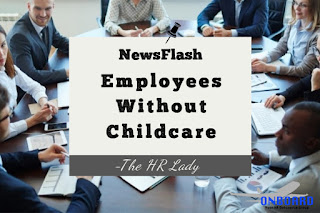NewsFlash: When Should You Call HR?

(Disclaimer: NewsFlash! is a section of The HR Lady Blog that showcases articles and posts from other organizations that are relevant to human resources.) When Should Managers Call HR? By Jonathan A. Segal July 21, 2020 Employers expect supervisors to resolve some issues on their own and to report other things to human resources—or possibly to in-house counsel—rather than to resolve them independently. But do you know which is which? For example, you probably know that you should report to HR all complaints of unlawful discrimination, harassment or retaliation, even if: The employee requests that the complaint be kept confidential. The employee implores the supervisor not to consult with HR. The complaint appears to lack merit. But in other instances, the line is less clear. For example, if an employee is frequently late, it's your job to resolve the issue by confronting the employee about his lateness and handling it according to established company policies. But what happens if ...

